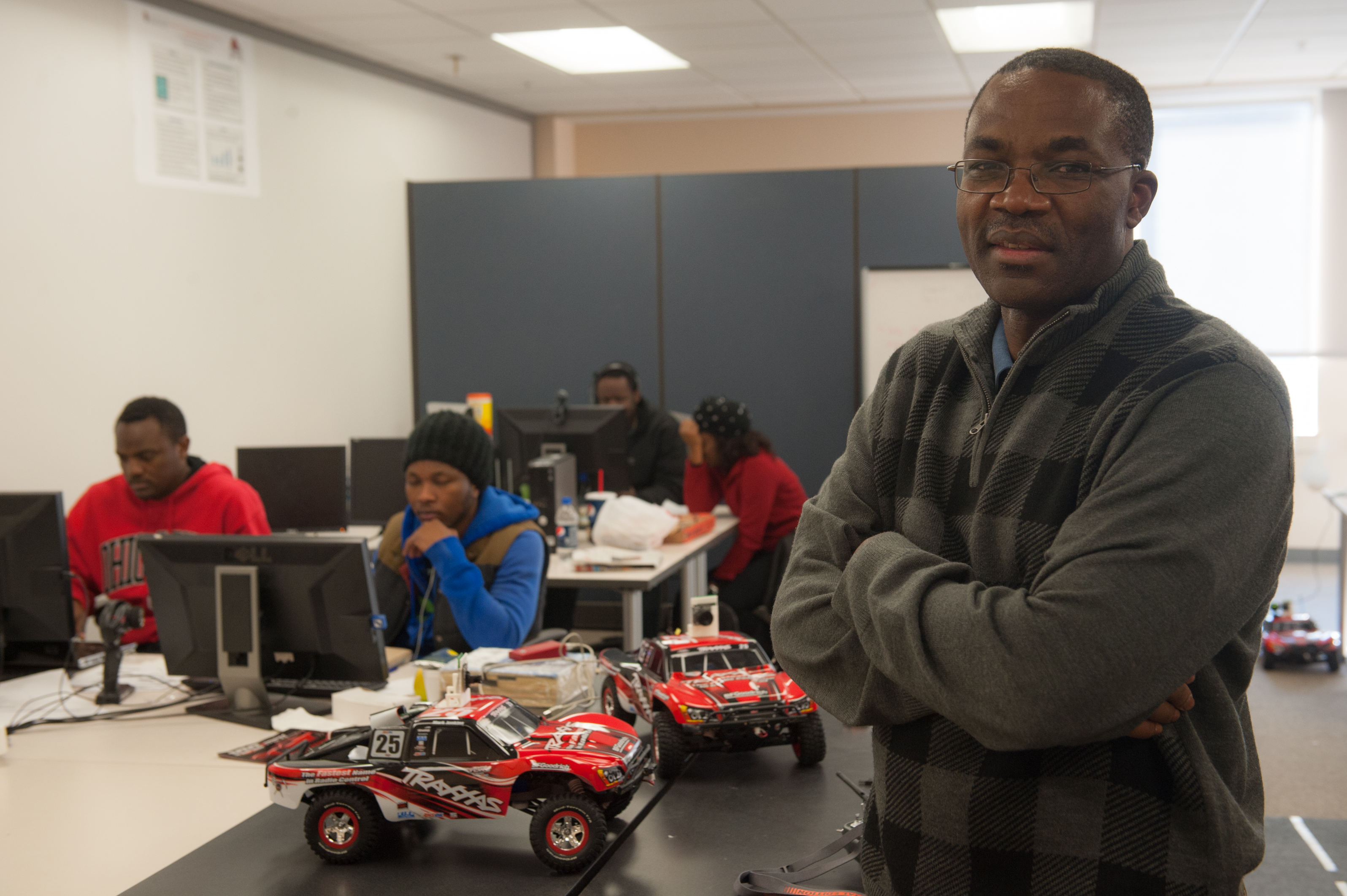FAYETTEVILLE, Ark. — As a computer engineer, Christophe Bobda works to make the design and implementation of multi-camera sensor networks easier — and his research has the potential to save lives.
Airport security, for example, relies on video processing to determine potentially dangerous circumstances. If luggage has been left in an area it should not be, the situation is time sensitive and should be investigated immediately. Processing all of the video images takes a lot of computing power and time.
Solving this problem would be a form of “intelligence,” i.e. local processing in individual cameras, automated cooperation among cameras, and “smart mapping” of tasks onto hardware or software within the cameras, according to Bobda, an associate professor of computer science and computer engineering in the College of Engineering.
“We’re dealing with a huge amount of data and the decision needs to be made right there to detect what is going on,” said Bobda. “The network is important. These ‘smart cameras’ need to communicate with each other quickly.”
The National Science Foundation has awarded Bobda a $370,586, three-year grant for a research project that would create self-coordination in cooperative smart camera networks by incorporating “system-on-chip reconfiguration.” His research team will design and deploy a set of collaborative, embedded and self-coordinating smart cameras, with the goal of monitoring large areas.
Bobda's research is highlighted in the February 2014 issue of The Arkansas Catalyst, an online monthly newsletter from the office of research and economic development.
Bobda’s group at the U of A, which includes almost a dozen graduate students, have built smart cameras and attached them to model racing cars that simulate the movement of mobile devices that would hold the recorders.
The bombings at the Boston Marathon in April 2013 is another example of the importance of the potential deployment of distributed embedded cameras. If there were better intelligence and coordination of these cameras, Bobda said, perhaps security officers would have detected two people who placed their backpacks on the street and left the area. It was later discovered that the suspects remotely detonated pressure cooker bombs inside the packs.
Bobda’s other research interests include protocol and architecture for dynamic on-chip networks, high-performance embedded systems and adaptive multiprocessors on chips. His research applies to various fields, including the design and implementation of multi-camera sensor networks.
Bobda’s computer engineering lab has an international flavor. The students communicate in English, with a generous dose of computer jargon mixed in. Bobda draws student from across the globe to take part in his research. His current graduate students have traveled from Cameroon, France, Germany, Mexico and Morocco to study with him.
Bobda explained that he uses many different resources to make international contacts and attract students from different countries. He has developed contacts at conferences and by serving on committees, and he doesn’t hesitate to reach out to colleagues over email. His hard work pays off when he is able to attract top quality graduate students from around the world to the U of A.
“They're very smart students,” he said. “You give them something to do, they've already solved the problem.”
Topics
Contacts
Christophe Bobda, associate professor
computer science and computer engineering
479-575-4797,
Chris Branam, research communications writer/editor
University Relations
479-575-4737,
